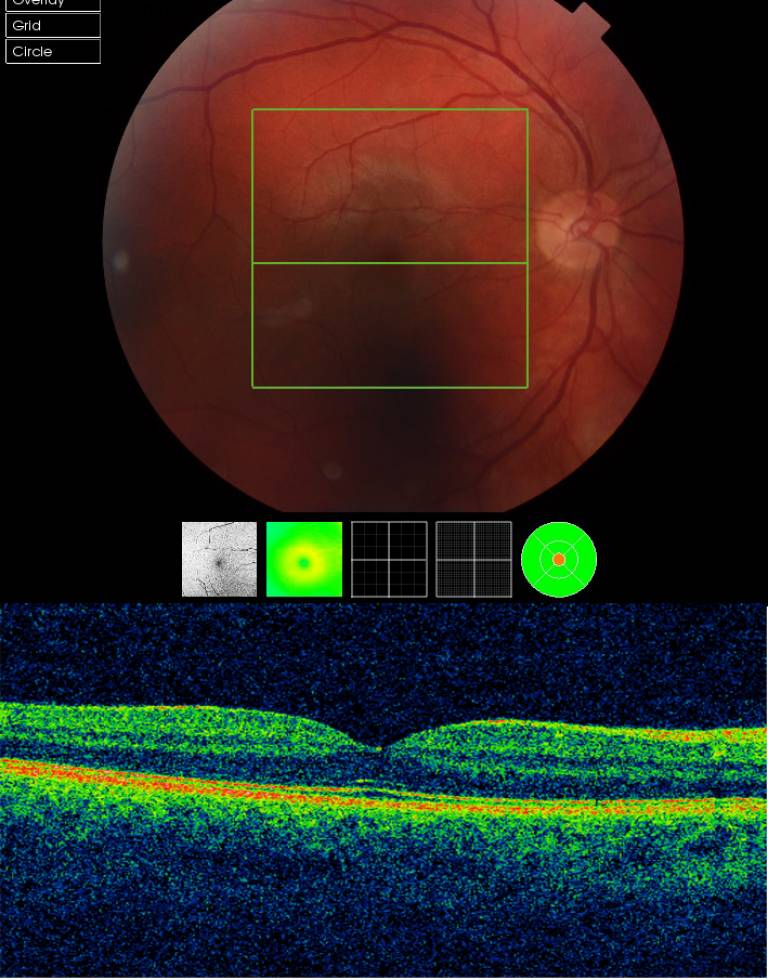Using AI to spot retinal diseases early
5 July 2016

Moorfields Hospital, the UCL Institute of Ophthalmology and DeepMind Health announce medical research partnership
A new medical research partnership that could revolutionise the way professionals carry out eye tests and lead to earlier detection of common eye diseases has been launched in London. Can machine learning technologies be used to detect eye diseases earlier than is currently possible?
With the number of people suffering from sight loss in the UK predicted to double by 2050, Moorfields Eye Hospital NHS Foundation Trust and DeepMind Health will explore how cutting edge technologies can help medical research into eye diseases, including age-related macular degeneration and sight loss as a result of diabetes.
The partnership brings together leading NHS eye health professionals with some of the UK’s top technologists at DeepMind, which specialises in using machine learning technologies to solve some of the world’s most difficult problems. As part of the research project between the Moorfields Eye Hospital and DeepMind, machine learning will be applied to one million anonymous eye scans, to look for early signs of eye conditions that humans might miss.
Two million people are living with sight loss in the UK, of whom around 360,000 are registered as blind or partially sighted. With the right treatment at the right time, many cases are preventable. For example, it is estimated that up to 98% of sight loss resulting from diabetes can be prevented by early detection and treatment.
Both Moorfields Eye Hospital and DeepMind Health hope that this work will eventually help eye health professionals to make faster and more accurate diagnoses, leading to better treatment for patients living with eye conditions.
Professor Sir Peng Tee Khaw, Director of the National Institute for Health Research Biomedical Research Centre in Ophthalmology at Moorfields Eye Hospital and UCL Institute of Ophthalmology, said:
“"Our research with DeepMind has the potential to revolutionise the way professionals carry out eye tests and could lead to earlier detection and treatment of common eye diseases such as age-related macular degeneration. With sight loss predicted to double by the year 2050 it is vital we explore the use of cutting-edge technology to prevent eye disease."
Mustafa Suleyman, co-founder of DeepMind, said:
““We set up DeepMind because we wanted to use AI to help solve some of society's biggest challenges, and diabetic retinopathy is the fastest growing cause of blindness worldwide. There are more than 350m sufferers across the planet. I'm really excited to announce this collaboration with leading researchers at Moorfields. Detecting eye diseases as early as possible gives patients the best possible chance of getting the right treatments. I really believe that one day this work will be a great benefit to patients across the NHS. We are proud of our NHS, and this is one of the ways I think we can help nurses and doctors continue to provide world-class care.”
Dr Dolores Conroy, Director of Research at Fight for Sight welcomes this partnership and comments:
““We are really excited about this collaboration and the potential of machine learning to analyse the thousands of retinal scans taken each week in the NHS allowing eye health professionals to make faster, more accurate diagnoses and more timely treatments thus preventing sight loss. In the longer term this technology could provide important insights into disease mechanisms in wet AMD and diabetic retinopathy”.
Cathy Yelf, Chief Executive of the Macular Society, said:
“"This is an exciting development towards early detection of eye disease and finding a cure for conditions including age-related macular degeneration (AMD). AMD is a devastating condition and delays due to pressure on eye clinics have resulted in some people suffering unnecessary sight loss. This technology could ease that pressure if it can accurately diagnose conditions such as wet AMD resulting in urgent referrals for only those that need them.”
Clara Eaglen, RNIB Eye Health Campaigns Manager, said:
“ "AI technology that can check retinal scans and detect eye disease at a much earlier stage could play a big role in tackling avoidable sight loss. In many cases, once sight is lost it cannot be restored, so earlier detection that leads to rapid treatment will be hugely beneficial. We look forward to seeing the results of the work as the research progresses."
 Close
Close

